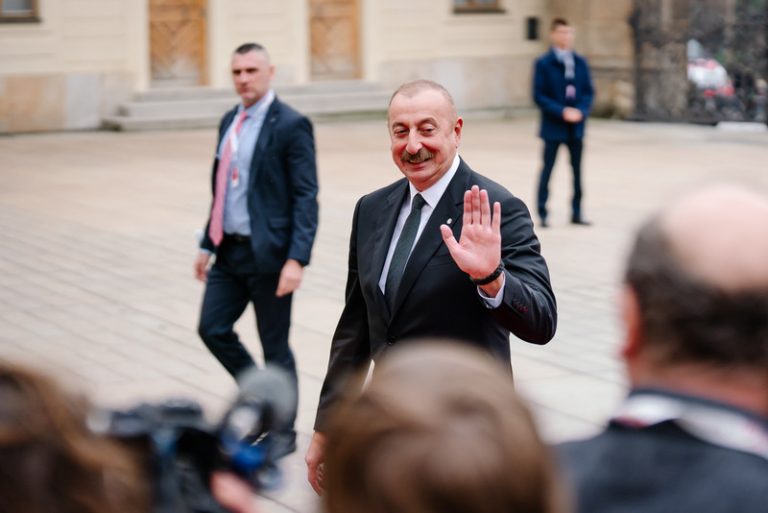The Munich Security Report, released this week ahead of the annual conference, provides a very thorough overview of some of the most pressing challenges to international security.
However, there is a central theme of democracy that is missing from this report and has not received the attention it deserves. It is a global fight against unfair and fraudulent elections that continues today. This reality is clearly evident in Azerbaijan's recent snap presidential elections, where the incumbent president, Ilham Aliyev, won with over 92 percent of the vote.
Aliyev recently brought forward the presidential election from the originally scheduled date of 2025 to February 7, 2024, raising worrying questions about the manipulation of the democratic process. The lack of transparency in this sudden schedule change raises concerns about the power of the sitting president to manipulate the election calendar.
President Aliyev's decision to hasten elections is consistent with a calculated political strategy. Riding the wave of popularity gained from the government's recent seizure of the Nagorno-Karabakh region, Aliyev aimed to use the momentum to secure his continued grip on power.
There is precedent for this ploy. It reflects past instances where the president changed election rules in his favor to maintain the kleptocratic politics his father started decades ago.
In 2009, Aliyev strengthened his position as president by removing the two-term limit on presidential terms. Later, in 2016, changes such as extending the presidential term from five to seven years and lowering the age requirement for candidates, the dynasty said, would ensure a seamless transition of power to his son in the future. suggested a plan.
In another questionable move, Aliyev appointed his wife as first vice president, strengthening his family's control over the country's leadership.
Aliyev iron grip
The Aliyev family's unyielding control over Azerbaijan's political landscape is further emphasized by its suppression of fair electoral processes and respect for human rights.
Since coming to power in 2003, Ilham Aliyev has consistently suppressed opposition, imprisoned more than 100 political opponents, and destroyed Nagorno-Karabakh after his regime ethnically cleansed more than 120,000 Armenians. jailed eight prominent former leaders of
No wonder the other six candidates who ran “against” him in this recent election did not criticize his governance at all. Indeed, it is no wonder that he was hailed as a great statesman and called for an election “without any meaningful challenge.”[which] The result was a contest devoid of real pluralism,” said one observer from the Organization for Security and Co-operation in Europe.
Furthermore, the regime's contempt for press freedom is evident in its suppression of independent journalism, especially in the months leading up to the election, with continued arrests of journalists who dared to expose corruption. Reporters Without Borders ranks Azerbaijan 151st out of 180 countries in its World Press Freedom Index, reflecting a clear pattern of suppression of free speech.
COP29
Despite claims that more than 80,000 observers are registered for the upcoming elections, Azerbaijan has a history of expelling observers, engaging in electoral fraud, and violently suppressing protests. This raises serious concerns about the reliability of the process.
The Organization for Security and Co-operation in Europe (OSCE) said in a statement: “There are signs of ballot box stuffing…[that] It raised serious questions about whether ballots were counted and honestly reported in this month's election.
As the international community witnesses these ominous signs, there is an urgent need to address the Aliyev regime's gross human rights violations. This is particularly important as Azerbaijan will host COP29, the United Nations' important annual climate conference, scheduled to be held in the country later this year.
As thousands of companies, climate change and human rights activists, and government negotiators prepare to visit Baku this year, they are acting with a clear conscience and ensuring that the fundamentals that are a core attribute of the COP process We must call on host countries to address human rights.
We cannot turn a blind eye to the regime's record of human rights violations. Following military operations in Nagorno-Karabakh, it is imperative that Azerbaijan respects human rights and independent media, releases all political prisoners, and concludes a peace agreement with Armenia. The same should be expected of COP29 organizers.


